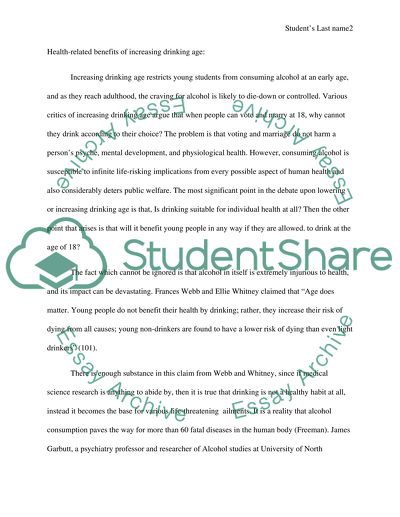Cite this document
(“The Benefits of increasing Drinking Age Research Paper”, n.d.)
Retrieved from https://studentshare.org/law/1475410-drinking-age
Retrieved from https://studentshare.org/law/1475410-drinking-age
(The Benefits of Increasing Drinking Age Research Paper)
https://studentshare.org/law/1475410-drinking-age.
https://studentshare.org/law/1475410-drinking-age.
“The Benefits of Increasing Drinking Age Research Paper”, n.d. https://studentshare.org/law/1475410-drinking-age.


